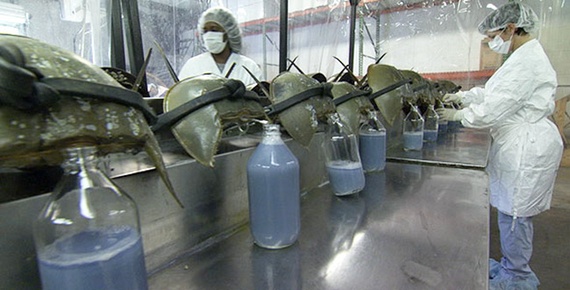 “‘Every drug certified by the FDA must be tested using LAL,’ PBS’s Nature documentary noted, ‘as do surgical implants such as pacemakers and prosthetic devices.’ I don’t know about you, but the idea that
“‘Every drug certified by the FDA must be tested using LAL,’ PBS’s Nature documentary noted, ‘as do surgical implants such as pacemakers and prosthetic devices.’ I don’t know about you, but the idea that every single person in America
who has ever had an injection has been protected because we harvest the blood of a forgettable sea creature with a hidden chemical superpower makes me feel a little bit crazy. This scenario is not even sci-fi, it’s postmodern technology.”
In The Atlantic, Alexis Madrigal unearths the amazing secrets, and industry, surrounding horseshoe crab blood. “The thing about the blood that everyone notices first: It’s blue, baby blue…The iron-based, oxygen-carrying hemoglobin molecules in our blood give it that red color; the copper-based, oxygen-carrying hemocyanin molecules in theirs make it baby blue.”

